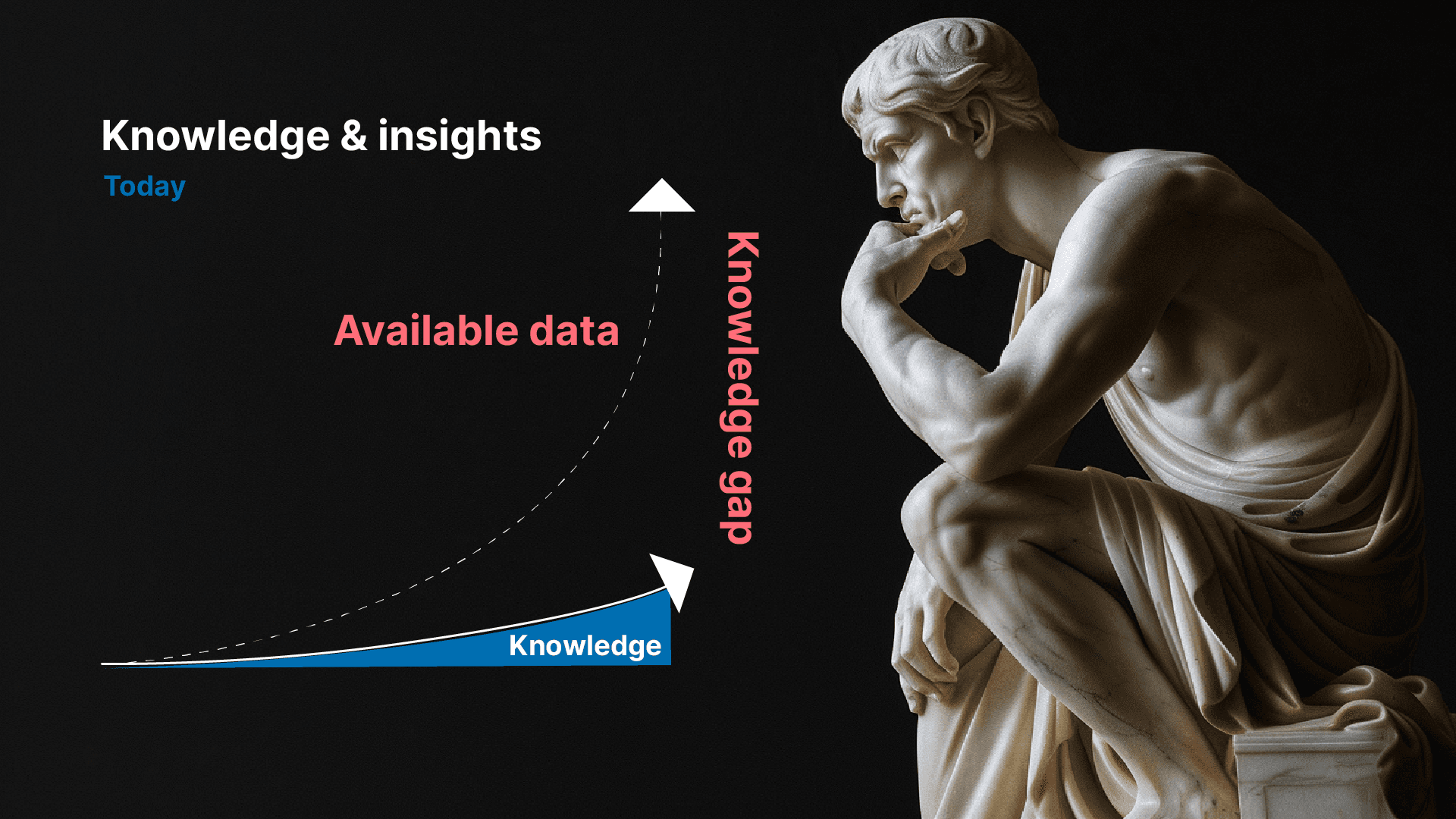Explore how artificial intelligence (AI) is changing the way of working with enterprise data. In this article you will follow the fictional company Bida OY, a leading player in the manufacturing industry, and their journey of how AI is taking place in the transformation of enterprise data management. From facing challenges with scattered and inefficient data management, to embracing AI technologies to transform the way they collect, integrate, analyze and leverage data.
Bida OY‘s challenges with data management
Bida OY was facing growing challenges in its data management, despite having access to abundant information from various sources such as production lines and customer interactions. The main problem lies in the proliferation of data across different systems and formats, leading to inconsistencies and inefficiencies, thus negatively impacting decision-making and innovation. The company’s management realized that the traditional methods of data management were insufficient and decided to implement AI technologies to transform their data management.
AI-driven data integration: The first change
Bida began its transformation by implementing AI-based data integration solutions. They used machine learning techniques to automatically identify and merge related information from all their sources, creating a unified and easily accessible data set. This change addressed previous bottlenecks, such as the manual process of processing and compiling data, which was time-consuming and prone to human error. By automating this process, Bida was able to significantly reduce delays in data analysis and decision-making.
But this change was not without its challenges. Integrating AI required a cultural shift within the organization, with employees needing to adapt to new tools and workflows. Training and collaboration became key themes as Bida navigated this transition. The company invested time and resources to ensure that every employee not only understood the new systems but also felt part of the change.
Maintaining data quality through AI
With an integrated data set, Bida turned its attention to data quality. AI-driven algorithms were used to clean, standardize and enrich the data, resulting in an improved quality by eliminating inconsistencies and inaccuracies. This step was crucial in building confidence among decision-makers in the use of data-driven insights. Decision-makers, who previously may have been hesitant to base strategies on data-driven insights, could now feel confident that the decisions they made were on a solid foundation of reliable and accurate information.
Data analysis and insight generation
With access to high-quality, integrated data, Bida leveraged AI tools for advanced data analysis. These tools were able to quickly process and analyze large amounts of data to identify trends, patterns, and insights. To make these insights accessible and actionable for the entire organization, Bida placed a strong emphasis on data visualization and presentation. Dashboards and visualization tools were developed and fine-tuned to transform complex data sets into intuitive, easy-to-understand visual representations.
Automation and efficiency: A changing working environment
AI brought a new level of automation to Bida, automating repetitive and time-consuming data management tasks. This included automating data entry, data cleaning and database updates, freeing up employee time for more strategic tasks. This increase in efficiency had a direct positive impact on productivity and reduced operational costs.
The result of the transformation
Bida’s AI- driven transformation led to a redefinition of their data management. The integrated and high-quality data set, combined with fast and efficient analytics capabilities, fundamentally changed the company’s decision-making processes. Bida became a shining example of how AI can positively transform the management of enterprise data, with benefits such as improved efficiency, higher data quality, deeper insights and significant cost savings. Their successful journey illustrates the potential and value of integrating AI into data management processes to create a more dynamic and forward–thinking company.
Would you like to know more? Get in touch!






